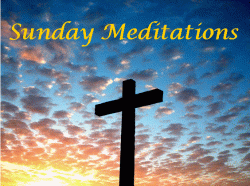Last Sunday, we had the privilege of hearing C.J. Mahaney preach in our church. His text was 1 Cor. 1:1-9 where Paul surprisingly commends the Corinthian church. He’s about to provide some strong correction for their many errors, but he goes out of his way to thank God for them, and ensure they know how blessed they are of God.
The message encourages us to find the evidences of God’s grace in the lives of those around us. It’s so easy to find fault; but when we study the fruits and gifts of the Spirit as revealed in God’s Word, we will see God at work in many ways in the lives of the people in our churches. This point is underscored by 1 Cor. 4:5. There Paul expects that God will give each minister a “commendation”. Not “condemnation” but “commendation”. This is stunning. At the judgment, and because of Christ’s transforming work in us and his substitutionary work for us, God will find things to praise us for. What wonder!
Now, don’t just enjoy my meager summary of the message. It’s available for free download from our church’s website. Click here. To learn more about C.J. Mahaney, click here. You can find other free sermons by Mahaney at this page, or by searching Sovereign Grace Ministries’ resource library. Also a C.J. Mahaney sermon archive is being created here.
May God grant us eyes to see how He is working in our lives today.
And after you have suffered a little while, the God of all grace, who has called you to his eternal glory in Christ, will himself restore, confirm, strengthen, and establish you. To him be the dominion forever and ever. Amen. (1 Pet. 5:10-11)
One last note: I recommend several of Mahaney’s books (a few are listed here). I’ve also reviewed The Cross Centered Life, and Sex, Romance, and the Glory of God.
 In the
In the 

 In extreme fundamentalism, every doctrine is a hill to die on. Music (worship), dress, Bible versions (KJVO), personal separation (i.e. no movie attendance, alcohol, tobacco, gambling), believer’s baptism, pre-tribulational rapture — all of these are lined up right next to the Trinity, justification by grace through faith alone, inspiration, inerrancy, the virgin birth, etc. In short, every doctrine is essential, no doctrines are merely secondary. If God says it, I believe it, and that settles it!
In extreme fundamentalism, every doctrine is a hill to die on. Music (worship), dress, Bible versions (KJVO), personal separation (i.e. no movie attendance, alcohol, tobacco, gambling), believer’s baptism, pre-tribulational rapture — all of these are lined up right next to the Trinity, justification by grace through faith alone, inspiration, inerrancy, the virgin birth, etc. In short, every doctrine is essential, no doctrines are merely secondary. If God says it, I believe it, and that settles it!